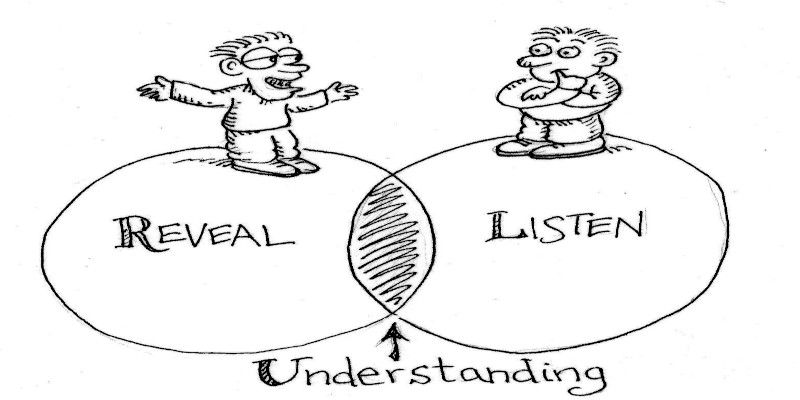Table of Contents
ToggleYou’re constantly complaining
One of the most obvious signs of a chronic complainer is that you’re … well, complaining all the time!
However, it isn’t always that obvious to us because we might get stuck into a pattern of constant whining without even being aware that we’re exhibiting that behavior.
Still, we should always take some time to analyze and reflect on our actions in order to improve.
People are pointing out that you nitpick a lot
There might be some truth to the matter when people tell you that you’re nitpicking all the time.
Nevertheless, we shouldn’t take everything we hear and see at face value. Thus, we should take some time to determine if the folks saying those things truly want the best for us. In the past, I had some trying to gaslight me in an attempt to control me because it suited their personal goals.
If they don’t think in your best welfare, then they might simply be gaslighting you, or trying to bring you down along with them, even if only not to be miserable alone. Just because you might be kind and respectful doesn’t mean that everyone thinks and acts in the same manner.
You’re venting without finding, or even trying to find solutions

Venting has its time and place. But voicing your discontent perpetually without even attempting to find answers is simply counterproductive, and will aid no one. Not even yourself.
We should always try to think of solutions, not problems. Yet, it isn’t uncommon for people to moan just simply because they can, and since it garners them the attention they so desire.
You ruminate a lot
Ruminating a lot might cause overthinking behavior, and even seeing all the negative events in life more clearly since that’s what we focus on.
That’s not always a bad thing, and can even be advantageous since understanding the issue can lead to resolutions.Still, constantly being faced with all the antagonistic experiences and despicable things others do might make you more depressed, bitter, and even cruel.
Needless to say, bitter individuals are more likely to grumble a lot because they’re stuck in a negative mindset compared to their more optimistic peers.People avoid you
People avoiding you can have multiple reasons. You might simply have different personalities and interests, but it’s also possible that they’re intentionally avoiding you because you’re always whining about the smallest, most insignificant things in the world.
We typically dislike negativity in our existence because there’s already enough trouble and tragic events going on as is. We don’t need any additional hassles that we could avoid, which is exactly why we deflect those who nag a lot.
You always see the glass as half-empty

While some always see the glass as half full, others see the glass as half empty all the time.
But if you’re concentrated on all the bad things happening, or what can potentially go wrong, then you’re more liable to see those bad circumstances. That’s not even considering that it’s probably going to become a self-fulfilling prophecy.
I’m not saying that you should disregard all the negative events happening in the world, nor that things can go awful.But what I’m saying is that you should try your best to remain cheerful, and to look at the bright side of life. There’s always something going according to plan as well, so it makes more sense to concentrate on those things since they bring us joy and purpose.
You’re typically in a negative mood
Our emotions are subject to change. But if you’re always in a negative mood, then that’s a clear giveaway that something is not right with your current mental state.
While the world isn’t always rainbows and sunshine, it isn’t always bad or unfavorable either. Thus, you shouldn’t be stuck in a constant state of anger, sadness, or negativity. But if you are, then that might be a sign that you’re disgruntled, or suffering from a mental health condition such as depression.
You have a negative outlook on life

You may have become so bitter and cynical that you’re stuck with an antagonistic outlook on life, even though positive events are happening all around us as well.
There are indeed terrible cases occurring all the time. And in the end, we will all perish. But that doesn’t mean that we can’t enjoy ourselves in the time in between. But we need to look at the bright side of life and stop concentrating on the poor parts too much if we wish to become content.
You claim that you’re simply being realistic
You may simply be more realistic than those around you and see more of the things going wrong than others. But it’s also a possibility that you’re simply saying that to rationalize your negative state of mind and constant moaning.
Rationalizations with some truth to them are incredibly powerful because that means that there’s always an excuse to be made in an attempt to validate our beliefs and actions. Yet, they can be incredibly detrimental because making excuses doesn’t lead to fixing the issues.
You’re irritable after venting

Being irritable after venting isn’t desirable nor the norm since it’s usually done to release frustration and decrease tension as a result.
If you notice that you do tend to get riled up after voicing your concerns, then that might be a sign that you’re simply whining without using that time to improve your attitude. And that simply isn’t helpful at all.
You spend a lot of time with other complainers
As they say, birds of the same feather flock together. If you notice that you’re surrounded by individuals who’re constantly making a fuss about the smallest of things, then you might just be complaining too much.
If that’s the case, then I would suggest searching out better company while changing your course of action. That’s because we don’t enjoy being around those who are constantly whining, and who are never in a good mood.
You surround yourself with negative people
Surrounding yourself with negative people means you’re more likely to be around snivellers as well.
Focusing on unfavorable circumstances makes you more likely to seek out like-minded individuals since you’re probably going to see all the dreadful things that are happening, while possibly becoming bitter and cynical in the process.
You’re too hard on yourself
Being too hard on yourself can cause frustration and anger. But it can also create perfectionism that makes you disgruntled about all minor things that don’t go your way, or according to your plan.
While trying your best, and taking accountability for your actions is great, being overly hard on yourself will create more issues than it solves. You should also practice self-love while being kind to yourself to balance out the seriousness and tension.
Everything has to be perfect, it’s never good enough

Perfectionism can make you great at something since obsessed people put in the required time and effort. Still, it’s a vicious cycle since we’re inherently imperfect, and can never attain true perfection of our craft and abilities.That’s why trying to be overly precise typically leads to frustration and anger eventually because things are never impeccable or going according to our plans.
Striving for greatness is perfectly fine and even admirable, but you should realize that it’s never going to be exactly the way you want it to be.You feel hopeless and helpless
Feeling hopeless and helpless can be the result of many conditions such as learned helplessness, or a mental illness like depression. Yet, it can also be a clue that you’re stuck in a rut while being unable to see a way out anymore.
If that’s the case, then you should try directing your attention to the circumstances that are under your voluntary control, and that you can change instead of trying to whine about all the stuff that we can’t do anything about.
Try utilizing your energy positively instead of wasting it aimlessly.You tend to dwell on what happened in the past
The past acts as the stern teacher that confirms we might have made some mistakes, but ultimately grew past these errors as individuals because we learned of those blunders and failures.
However, some people get stuck in the past and keep reliving the disappointments and faults they once made.
That’s only useful until we’ve learned the lesson(s) that we need to learn from those painful experiences. But afterward, we need to let bygones be bygones and look forward to the future since we’re now better equipped to deal with new, challenging situations.You think in problems instead of solutions

A lot of folks think of problems instead of solutions. But I think that’s simply counterproductive. What good is it to create more issues rather than solve them to improve our existence by making our lives easier and less stressful?
You should make it a point to focus on what you can do to make things better instead of creating more concerns by enlarging the difficulties that already exist.
You compare too much
There’s only one person you should compare yourself to, and that’s yourself. Everyone’s different, and thus, so are our skills, perks, and imperfections.
Everyone has their gifts, but also weaknesses, which means we should play to our strengths. But unfortunately, most of us try to compare the things we’re not as competent or talented at with others who are superb at those things. This regularly creates low self-esteem and a sense of inferiority.
You don’t handle compliments well

Not handling compliments well can be a sign of low self-regard, but also that you’re thinking that everyone’s out to get you and that all compliments are a ruse by default.
Both aren’t beneficial to our existence and should be fixed if we wish to live a meaningful and content life. Learning to appreciate praise is beneficial to your mood and overall well-being since we all like to be acknowledged from time to time.
You think everyone’s out to get you
I believe it’s true that some folks are terrible, and out to get us by attempting to misuse our trust and empathy. But it’s foolish to believe that everyone out there is that malevolent.
You shouldn’t be naive, but you also shouldn’t think the worst of all those around you. You should learn to trust, but more importantly, who to rely on. That’s something that we can exclusively learn through observation, and through practical experience by living our life to the fullest.
Frequently Asked Questions (FAQ)
Why do I complain so much?
Emotional (dys)regulation
The most common reason for complaining too much is suffering from emotional dysregulation, and groaning in an attempt to manage their feelings.
We typically complain much more when we’re in a negative state of mind compared to when we are content and gleeful.
To get attention

Grumbling can be used to garner attention since you’re affecting other people’s emotions, and since empathic folks will want to help out those in need.
Nevertheless, it’s not a healthy way to attract the spotlight. Even more, having an excessive need for external validation isn’t good for your psychological well-being at all. The only people who should have some sort of influence on your actions and mental state should be those who love you and want the best for you.
You should behave in the manner that you would want to be treated as that’s the appropriate way to act most of the time. At the very least, you’ll have the peace of mind that you tried acting in the way you thought was best, even if you happen to find out that it wasn’t.
To excuse themselves for performing poorly
Making a fuss can be an attempt to search for an excuse for why they performed poorly in an activity.
We often end up rationalizing our behavior and what we did poorly/wrong to reduce the associated anxiety that regularly comes along with these errors. And while intelligent individuals are very adept at justifying most of the time, that doesn’t mean that it’s right. We have to accept what we did poorly before we can get better at that given thing.
To remove responsibility

Complaining why things went astray is much easier on our psyche than admitting to ourselves and others that we failed or made an error.
And while that might feel better, it’s only a Pyrrhic victory. Without taking responsibility, there’s simply no chance to undergo growth. Why would we bother to develop ourselves when nothing is our fault, and anything that goes wrong is automatically the blame of an external source?
To make themselves feel stronger
Protesting can be the result of an attempt to feel stronger. They might make it seem like they’re the victim, while you, and/or everyone else around them is to blame.
Of course, that’s rarely the case, and you shouldn’t tolerate that behavior from anyone. That’s also why you need to call out these acts of victimizing, and making you the oppressor if you wish to prevent it from happening again in the future.
To stimulate resentment in others
Finally, some malevolent individuals may misuse nitpicking as a tool to stimulate envy and additional negative emotions in others in an attempt to make their existence as miserable as possible.
Still, that’s not even beneficial to the person displaying that harmful behavior since they’re only going to make themselves more wretched as well. If you feel the need to hurt those around you, then you have some work on yourself to do to heal from past wounds and trauma, so you can be happy once more.
Is it normal to complain all the time?

Try to figure out why you’re in that negative state to change your behavior for the better.
What is the root cause of complaining?
The root cause of complaining is bitterness that makes you so disgruntled and distressed that you feel the need to quibble to feel better and in an attempt to regulate your emotions.
It’s quite obvious that you feel unfortunate about a given thing to the point where you feel the need to gripe about it.
Even better than simply kicking around in frustration is making a plan, and taking action to change things for the better.
How does complaining affect others?
Unbeknownst to a lot of us, we tend to feel and adjust our emotional state to that of those surrounding us. If others in our vicinity are disgruntled, then we’re more inclined to become dissatisfied as well. Especially when we’re empathic and/or emotional individuals.
Attempting to one-up each other is another possible result of groaning too much. “What you experienced was bad, but what I went through was even worse!” Or, “Yes, I didn’t cook, but you didn’t do the dishes yesterday either” are some potential examples when trying to exceed someone else’s upset.
How do I tell someone to stop complaining?
Listen to their complaints

Someone may be complaining because they don’t feel understood, or like others are listening.
Hearing them out and being empathic about their struggles can already aid in resolving a lot of their disgruntled mood. Chances are they’re simply searching for assurance regarding their ideas or mental condition.
Reformulate their situation
Reformulating their situation to be more accurate and realistic is a great way to reduce the negativity. People who are annoyed with something lean toward exaggerating their issues, and that’s why reframing their circumstances can be so effective in reducing pessimism.
People are inherently biased. We’re not machines who are rational all the time. I notice in myself that I tend to magnify my concerns when I’m in a bad mood or dealing with difficult life events. And that’s when I need my friends and loved ones to rephrase my situation more realistically to keep the tension from becoming overbearing.
Alter how you deal with the disgruntlement
There are times when you simply can’t change the situation, or how other people think, no matter how competent and well-meaning you are.
But what you can do is change your response, and how you decide to deal with these folks. You shouldn’t take it personally when they’re complaining or trying to put you down to elevate their low self-esteem. Altering your communication style to suit your conversational partner can also help to reduce tension since they’re more likely to feel heard and understood.
Search and ask for resolutions

Simply asking whether the complainer has any potential answers or not can already improve the situation since they feel like their opinion matters and like they can employ their potential resolutions.
In my personal experience, asking questions such as, “How would you solve that situation?” Or, “What can be done to improve these circumstances?” are excellent ways to find possible solutions.
Call out their behavior
If all the previous steps failed, then one of the few things left to do is to simply call out their toxic behavior in an attempt to make them stop.
It might work since it’s direct, honest, and assertive. But I think that it’s more probable to cause even more frustration and anger since the whiner will most likely feel misunderstood, and like their views don’t matter.
Still, it’s necessary to do so if everything else fails and there’s simply no other way to get them to stop lamenting. Yet, it’s a large and hard step to take for most since it’s fairly confrontational. That’s especially true for those who are compassionate, submissive, and who value peace over disagreement.
Redirect the conversation
Redirecting the conversation to another, more enjoyable topic can be another quick fix if you notice there’s simply no end to their constant whining.
While it doesn’t resolve the issue, it can help to reduce stress because they’re distracted, and due to not giving them the chance to let loose by changing to another subject.
Occasionally we can’t just cut people out of our lives such as at work, or our recreational circle. That’s where this technique will shine the most since it allows for cooperating respectfully and peacefully instead of having to call them out on their annoying actions.
Tell them to stop

Telling them to stop can go two ways. It can make them quit their fretting immediately because it is so direct, confrontational, and assertive, or it can make them even more annoyed and disgruntled.
If that’s the case, they’ll start kicking around even harder than before.
As a result, this technique is best applied when you have a stick behind the door. The stick in this case is having the ability to cut them out of your life altogether if it doesn’t end up panning out.
Cut them out of your life completely
Unfortunately, the only person we can control and alter in this universe is ourselves. And even that requires a great amount of willpower, effort, and time.
But if every other measure fails, then you have no choice but to cut them out of your life completely. Just know that you did everything you could to help them, and don’t take it personally when they end up insulting you because you didn’t give them the satisfaction of validating them that they typically so desire.
In the end, it’s their issue, and not yours. If you tried to assist them to the best of your abilities, then you did much more than the average person is willing to do.
Letting them go can even be the best thing to do for the other party as well since we’re incapable of helping. Enabling or having to lie to appease will get them nowhere either.
What is a constant complaining personality disorder?
Someone who has a constant complaining personality disorder is also commonly called a chronic complainer.
Those suffering from an obsessive-compulsive disorder are constantly whining about every little thing and disappointment that happens in all facets of their existence.
They’re typically unhappy and stuck in a constant state of negativity. Even when fortune befalls them, it’s still never good enough, and they will search and twist the situation in such a manner that they can keep moaning. They tend to focus on the adverse rather than the optimistic features in life.
Final note

Complaining without searching for an answer, or taking action for that matter, is pointless since it’ll lead to even more headaches rather than resolving a concern.
And while it is natural to vent from time to time to release pent-up anger and frustration, fretting constantly isn’t normal or healthy. Not for you, or the people around you.
That’s why you should make it a point to think of solutions rather than problems. Because working out issues will lead to fewer frustrations to kick over.













